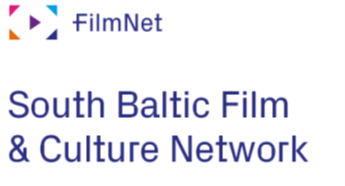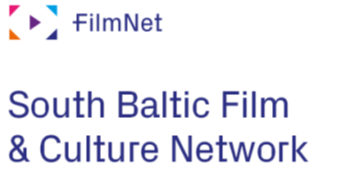.“
Newsletter No 5
FINAL of the PROJECT
Anything that has a beginning also has the end. This also applies to our projects. On September 14-15, 2020, we summarized over 2.5 years of activities of the FilmNet (South Baltic Film and Culture network) project.
The final conference was held in Elbląg at the “Światowid” European Meeting Center in September 15th, this year. The day before – a workshop meeting devoted to the possibilities of further cooperation. Additionally,
during this days project partners had the working meeting to discuss the formal side of the project. Both the conference and the workshops were carried out “hybrid”, i.e. the physical meeting and on-line. Conference
participants, both those present in the room and those who watched the on-line meeting, could compare theory with practice, i.e. what was planned within project goals, results and activities with what has been achieved during more than 2,5 years project.
The most important achievements
As we believe, from the point of view of the cross-border cooperation program, the most important achievement is building a permanent international cooperation network of organizations dealing with the broadly understood subject of film and film education. It is a network operating in the South Baltic area and connecting various actors. And they are not just project partners. During the project implementation, new contacts were obtained – in Poland, Sweden and Lithuania. Thanks to this, it is much easier to work on another project – in the area of cinema cooperation, building culture and film education. For partners from Poland and Lithuania, it was especially important to transfer to our regions the experience of the Swedish partner Filmregion Sydost in the field of the functioning of film clubs (as a film education tool). It was succeeded and we informed you about it in Newsletter 4. Both in Poland and Lithuania, such film clubs were established, workshops for children and teenagers were held, and the website https://film-club.pl was built. Here you can find all the necessary information, materials and tools to set up and run such
a club. What deserves special attention are the activities dedicated to
the common baltic identity (Baltic Identity Tour). The partner – Baltic Sea Cultural Center from Gdańsk was responsible for this package of activities. Admittedly, this is not an easy question. 22 films from 4 countries were selected and their screenings later showed a number of problems related to the issue of Baltic identity. For most people, the first associations when we
talk about identity revolve around an individual (personal) identity, not a social (or common) identity. In the summary of the action – the FilmNet Baltic Identity Film Tour report (which we also wrote about it in Newsletter No 3), this problem was noticed – the lack of clear “baltic” identification of the film’ authors (in our particular case the film was used an expression and carrier of identity). Finally, we came to the conclusion that we are before a long process of finding what unites us and, above all, integrating these elements into our national cultures. And, what is more importantly, integrating them into individual human consciousness.
What’s next…
The potential of preserving and developing the obtained effect has already been demonstrated by the FilmNet project. The foundations are established contacts and continued cooperation in the area of film, film festivals and film education. Work is already underway , regarding the next project application for funding under the Creative Europe program. We keep our fingers crossed! Project durability could be achieve thanks to using the tools of supporting film education created by the project: websites, educator’s handbook, lesson scenarios, instructions “How to set up a film club”, as well as trained educators, who will be able to conduct classes within the Film Clubs. Already now, activities in the field of film education are included in the programs of the activities of local Cultural Centers (e.g. in Nidzica or Dzierzgoń). We also hope to continue the film workshops in
Sępopol. With the will to continue activities and cooperation by partners and newly acquired friends, the FilmNet project has a chance for a new life!
So please contact us:
Center of European Meetings „Światowid” , Elbląg (Poland) ; www.swiatowid.elblag.pl
Association of Polish Communes of Euroregion Baltic, Elbląg (Poland); www.eurobalt.org.pl
Nadbałtyckie Centrum Kultury w Gdańsku (Poland); www.nck.org.pl
Institute for New Media, Rostock, (Germany); www.ifnm.de
Filmregion Sydost , Växjö (Sweden); www.filmregionsydost.se
Rietavas Tourism and Business Information Centre w Rietavas (Litwa); www.rietavovic.lt
Pomeranian Film Fundation / Gdynia Film Center (Poland); www.fundacjafilmowa.pl , www.gcf.org.pl


The contents of this Newsletter are the sole responsibility of the authors
and can no way be taken to reflect the views of the European Union, the
Managing Authority or the Joint Secretariat of the Interreg South Baltic
Programme 2014-2020




